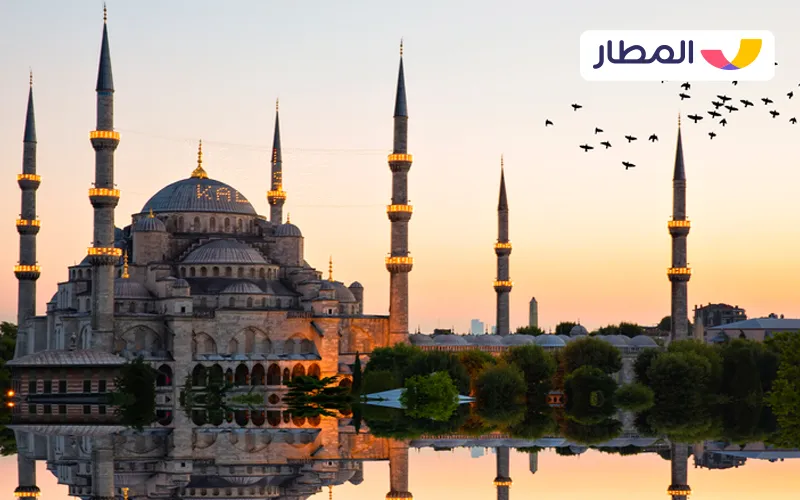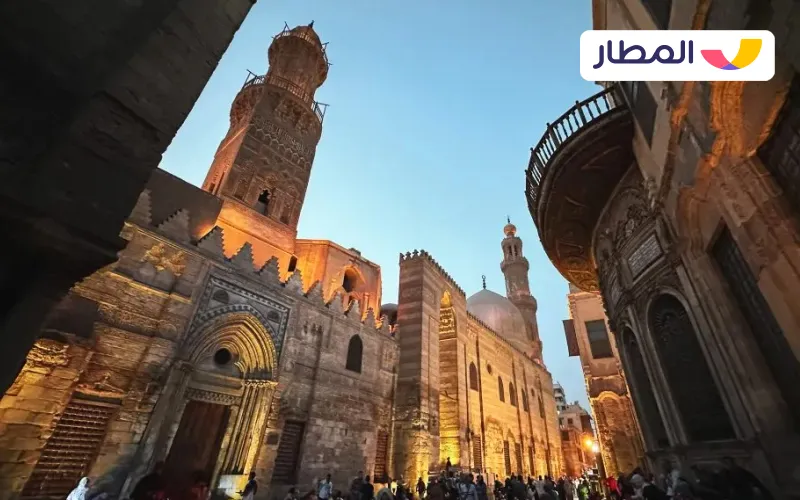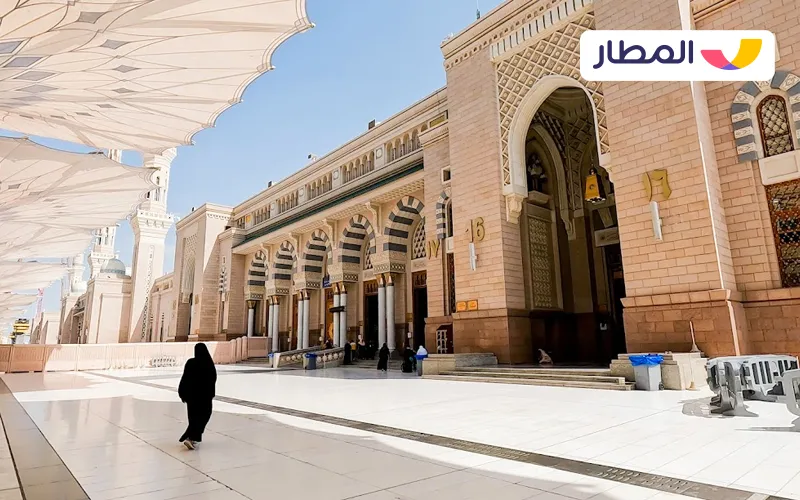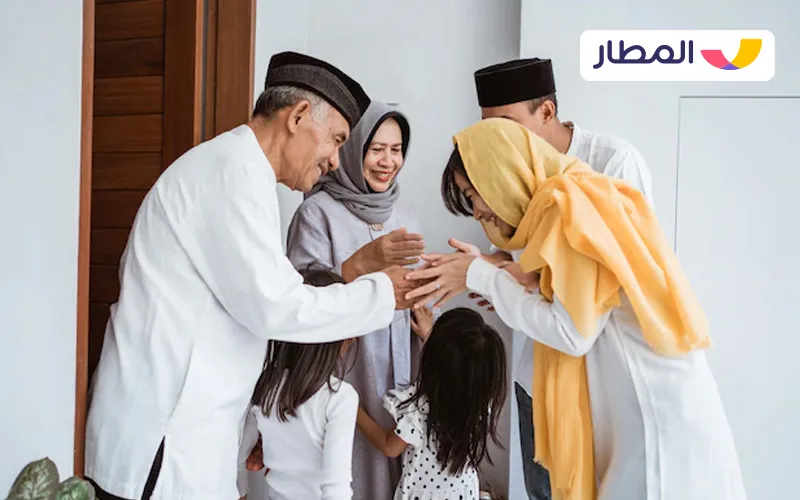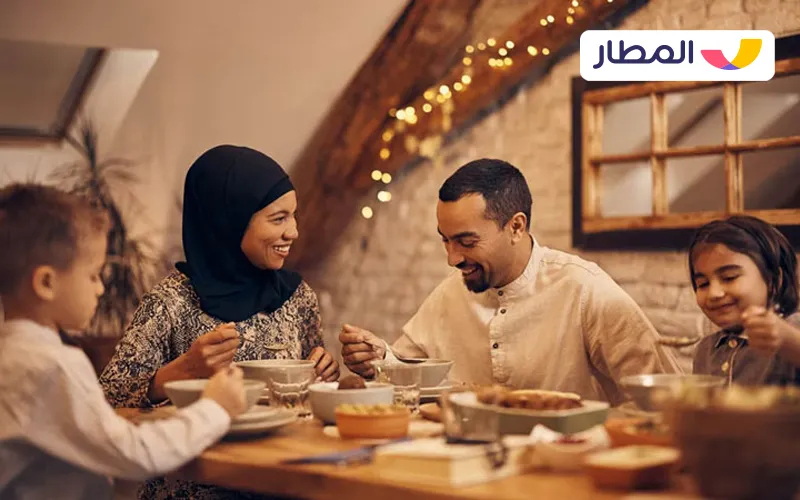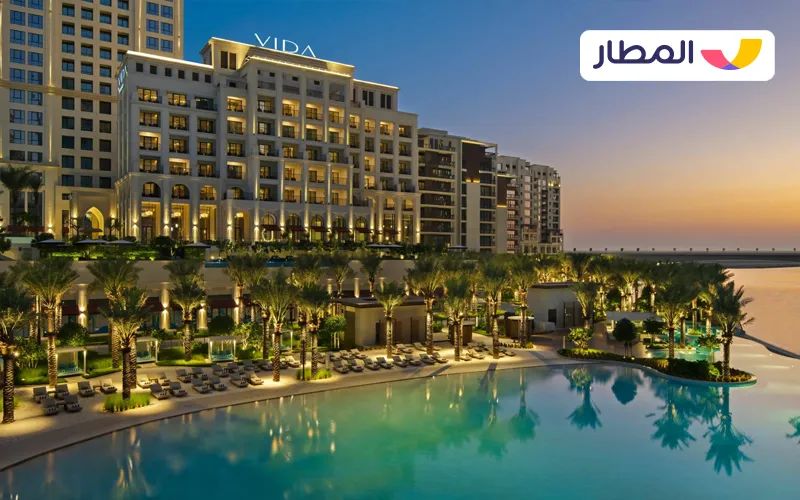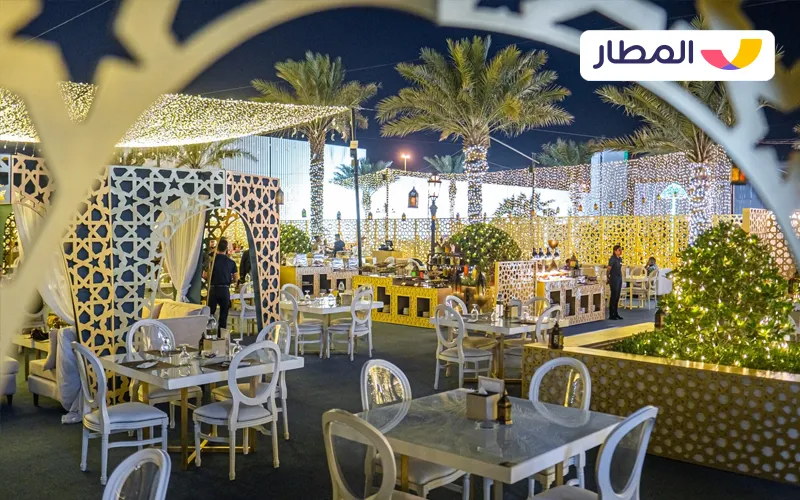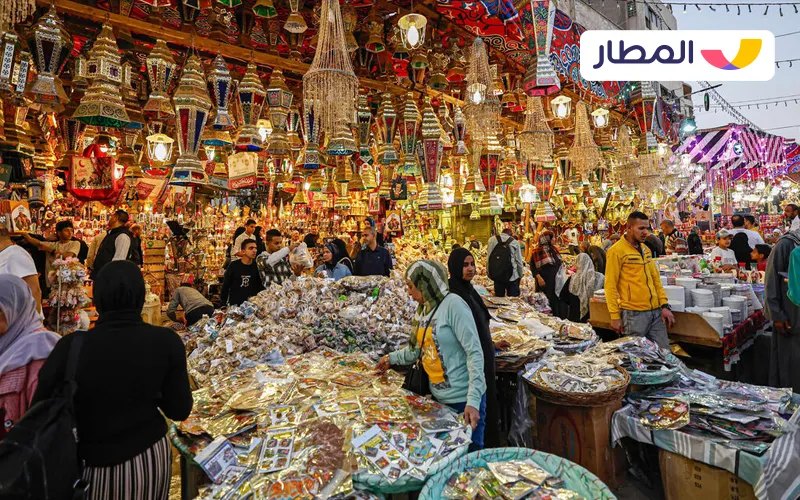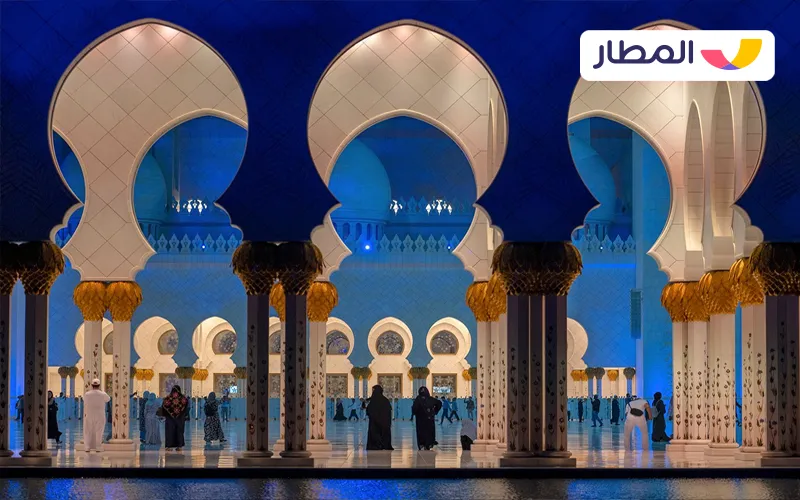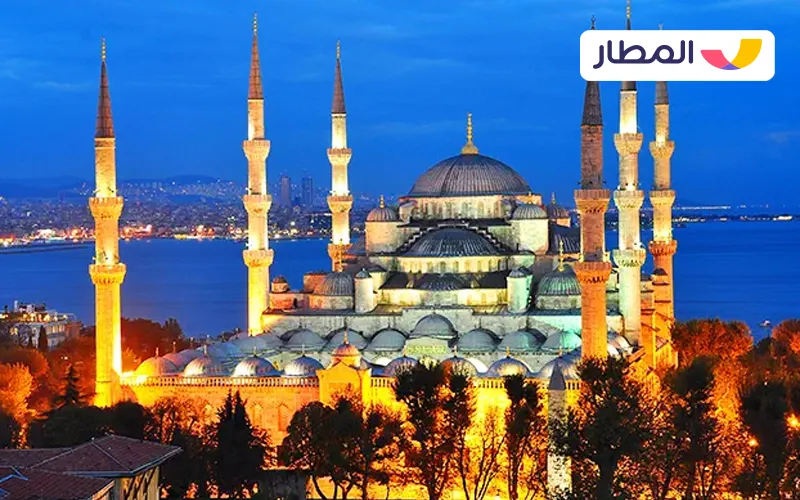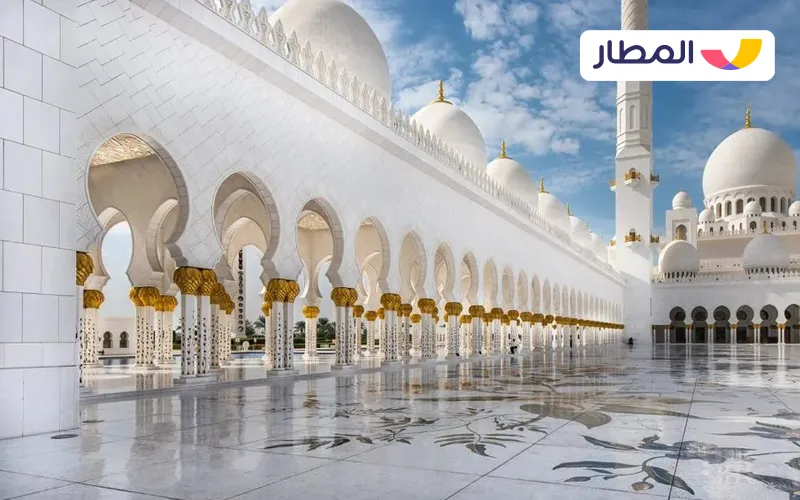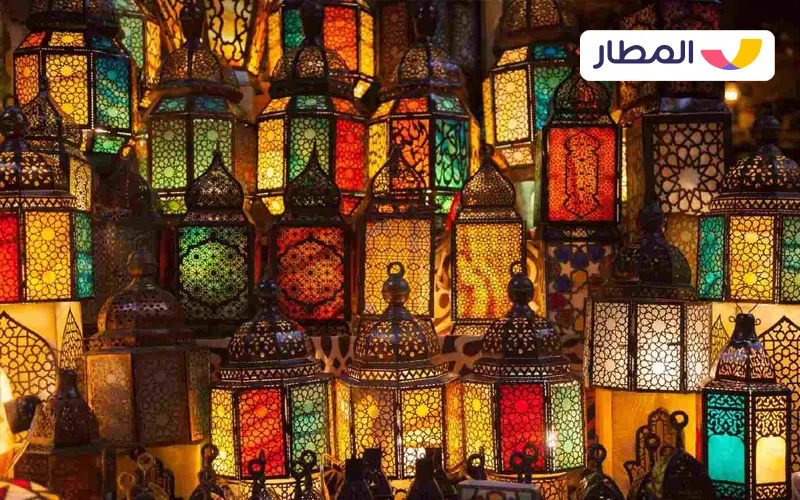Ramadan is a vibrant month, and the vitality of this month is reflected in various aspects and dimensions in Muslim societies. This can be seen by how the fasting lifestyle has changed, as if one of the goals of this holy month is to break the restrictions and shackles that we have put on our necks in eating, sleeping, doing business, communicating, and more. In addition, this month resets your compass in your relationship with your Creator by documenting your relationship with worship, reading the Koran, praying, visiting the mosque, performing Umrah, or visiting the Prophet’s mosque.
Corrected: When the month of Ramadan arrives, Muslim communities across various countries experience a significant change in their lives. They adjust their lifestyles according to the timings of Iftar (the meal to break the fast) and Suhoor (the pre-dawn meal) and devote themselves to fulfilling religious duties.
One of the things that is changing is the tourism aspect. Tourism in the month of Ramadan does not stop, but it starts with the nature of this month, and Ramadan comes to change the pattern of our tourist activity. In this article, we will try to look at the impact of Ramadan on domestic and foreign tourism.
Ramadan and visiting religious sites
The month of Ramadan is an important stop for Muslims to visit some religious sites that are sacred to them. Travel to religious sites is classified as internal and external religious tourism. Those who travel in the same country to other areas in it that contain religious sites will be classified as internal religious tourism, and those who travel from country to country for the same purpose will be classified as external religious tourism.
Mecca and Medina are the two most important travel destinations during Ramadan. Many Muslims visit Mecca to perform Umrah because of the credit for this during this month, and some of them go to the city to stay next to the Prophet’s mosque and to perform his duties of worship every day in it. And there are those who go to them together, so they perform Umrah in Mecca and then head to Medina. This means that the month of Ramadan increases the percentage of domestic travel in Saudi Arabia to Mecca and Medina and also increases the percentage of foreign travel, that is, from other countries to inside Saudi Arabia, that is, to Mecca and Medina.
Many Muslim countries have religious sites worth visiting during the month of Ramadan, and the movement to visit them is always active during this month, especially the ancient mosques in Cairo, Damascus, Istanbul, Iraq, and some Maghreb countries.
Visiting friends and family during Ramadan
One of the activities that are practiced during the month of Ramadan is visiting parents and relatives, connecting with the womb, and communicating with friends and loved ones. Ramadan, which is the month of mercy and goodness, imposes itself on our social relations, as it pushes Muslims to connect what has been broken with others, and its atmosphere urges them to connect with the womb because of its importance in the Islamic value system. Communication means moving from one place to another, which calls for increasing the activity of internal travel between regions, such as traveling from Riyadh to Jeddah or from the eastern province to the center of the country, and this activity is considered to be one of internal tourism. The closer the month of Ramadan comes to an end, the more active the tourist movement is, because some families carry out their tourist activity to reach the last part of Ramadan with Eid al-Fitr, and Eid al-Fitr is considered the peak of the rise of tourist activity and the trend towards traveling from region to region and from country to country.
Hotels in the month of Ramadan are different
Hotels in Muslim countries take on a modified program during Ramadan. They work to provide everything that comforts their residents. This means taking into account the dates of Ramadan and Suhoor Iftar, and the hotel service will then be considerate of this aspect. Because hotels take into account the presence of this month in their programs, this pushes people, especially businessmen and business owners who require travel, not to freeze their travel and activity during this month. In addition, some hotels are located in religious places that attract tourists. Dozens of hotels, for example, hotels next to the Prophet’s Haram in Medina or hotels next to the Makkah Mosque in Mecca. There are many hotels near large and ancient mosques in many Muslim countries, which means that people go to them during Ramadan and stay there, taking advantage of their proximity to places of worship.
Events and activities during the month of Ramadan
Many Muslim countries decorate during the month of Ramadan, and their markets wear beautiful suits suitable for this month. The district and governorate committees are working on activating many local activities, and many events are being held. The goal of all this activity is to move the economic wheel in the markets and attract tourists to spend a special month in these areas during Ramadan. This is what we find in the Gulf states and in Egypt. All this encourages domestic tourism between regions and also pays for foreign tourism and travel from one country to another.
The Ramadan atmosphere in Muslim countries and the events that accompany the launch of this month are an opportunity to discover their culture and customs, mix with their local communities, and get acquainted with their heritage and activities during the fasting period. Every country has its own customs in food, in commemoration, in worship, in shopping, and in the daily routine of activity. It will be very interesting to see all these details closely.
Some tips for doing internal or external tourism during Ramadan
Because Ramadan is a different month, your travels to any destination should be commensurate with the spirit and nature of this month. Here are some tips if you want to travel to an internal or even external destination during the month of Ramadan:
-
Choosing the right destination for Ramadan
It is very important that the city you are going to is commensurate with the fact that you are fasting and performing this duty, and that the community you are staying in respects the privacy of your religious rites. It is also important that there are mosques next to your place of residence and that the hotel is in harmony with the entry of Ramadan into our lives.
-
Advance planning and exploration
If you are heading to an Islamic city or to a country with many religious sites, it is important to plan this trip well, as by exploring the place theoretically and planning to go to it, you can turn this trip during Ramadan into a real pleasure because you will not miss any heritage place or any religious forum at that time.
-
Integration with the local community
Every Islamic community has its own customs during Ramadan, namely habits in food, drink, way of living, cooperation, volunteering, and more. You will have a very rich experience if you decide to merge with their Ramadan habits, and you may acquire some useful habits in their way of living and in their outlook on life.
-
Decide how you eat during Ramadan
It is necessary to get acquainted with the restaurants that serve the right food for you during Ramadan. And you should check the halal eating places too. The topic of the timing of the presentation of the main meals is also necessary. As for suhoor, this is up to you; you may be content with snacks at the hotel, and you may need saturated meals, and here you should investigate restaurants that offer good food at the time of suhoor.

